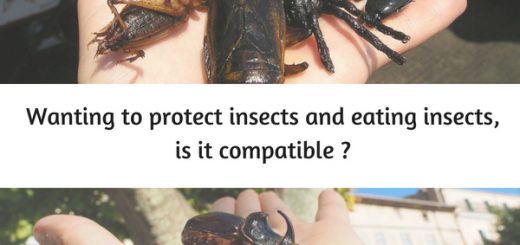Top 3 Rules of Farming Black Soldier Flies
After writing my first article on black soldier flies 2 years ago with Pierre-Olivier Maquart, I often got many questions about this topic. Even if I’m really interested in these insects, this is far from my area of expertise…
For offering you more information on black soldier farming, I’m really proud to invite Dr Jeff Tomberlin to write about it.
Dr Jeffery Tomberlin has a PhD in Entomology, he’s Professor at the Texas A&M University, is on NACIA board of directors and one of world’s expert about black soldier fly.
If you want to start producing black soldier flies, he’s definitely the person to go to.
(For more information, don’t hesitate to reach out to him following the links at the end of the blog.)
The top 3 rules for farming black soldier flies
Black soldier fly seems like a fairly simple insect to maintain in colony. Adults mate, lay eggs, and resulting larvae feed on food residue. These larvae then can be harvested and used as a feed for poultry, aquaculture, lizards and other insectivorous animals serving as livestock or pet.
However, biology of this insect actually has some unique aspects that serve as challenges for a beginner to overcome, which often leads to frustration. So, I want to provide you with three basic rules to help you get started.
- Adults are the heartbeat of your production. Without a sustainable adult colony, you will not be able to produce black soldier fly larvae consistently. To do so, you need to design a space suitable (recommend one-meter cube covered with wire mesh or plastic that will allow airflow and light to enter) for them to have active fly, exposure to warm temperatures (27C), high humidity (70%), and lots of sunlight (or artificial light). All of these factors impact the ability of this fly to mate and lay eggs.
- What you feed larvae impacts your output. Black soldier fly larvae can consume just about any organic matter. If you use food waste, you want to chop it into small pieces (cm if possible or smaller). Doing so allows the larvae to consume the material quicker which should reduce odor and prevent pest insects (house fly) from colonizing. Also, make sure to serve something balanced in diet- avoid solely feeding them meat as they will struggle to digest it.
- Keep your location clean. This rule is very crucial for your production. Clean your adult cage weekly.(removing dead flies) and wash your pans. Doing so will prevent pest flies or other pests (mice) from being a common occurrence in your facility.
More information on Black soldier fly farming from Dr Jeff Tomberlin
These are just a few notes on producing black soldier fly in your home or business. I welcome questions and feedback. So, please do not hesitate to contact me.
Visit this page for artificial lights to use in your black soldier flies adult colony.
Follow the following link, for those in the USA that want starter kits of black soldier fly, or dry product for your chickens.
And finally click here if you want to learn more about my endeavors with the black soldier fly.
I hope you learnt as much as I did reading this blog! As he said, during his talk at the “Eating Insects Athens” conference: “If you want to join this industry, there is room for everybody as long as you got the right mindset.”
Thank you Jeff!




Flo, good article. I am already in contact with Pierre-Olivier who is doing his PhD at Glasgow University. I want to engage him for the Tunisia F1 Project. Pierre-Olivia did a BSFL farm in Ghana a few years ago. I want to look at culitvating BSFL with good feed-material from the vegetable market, etc. and see if they can be converted to powder, mixed with other plants (eg the Moringa Oleifera) and make food for the poor and for the refugees. We should also look at entomophagy for farm animals to reduce the need for expensive feedstock. There is a big world out there for organic farming involving insects, plants, farm animals (and fish). While humans may not eat insects they will be eating farm animals fed with insects.